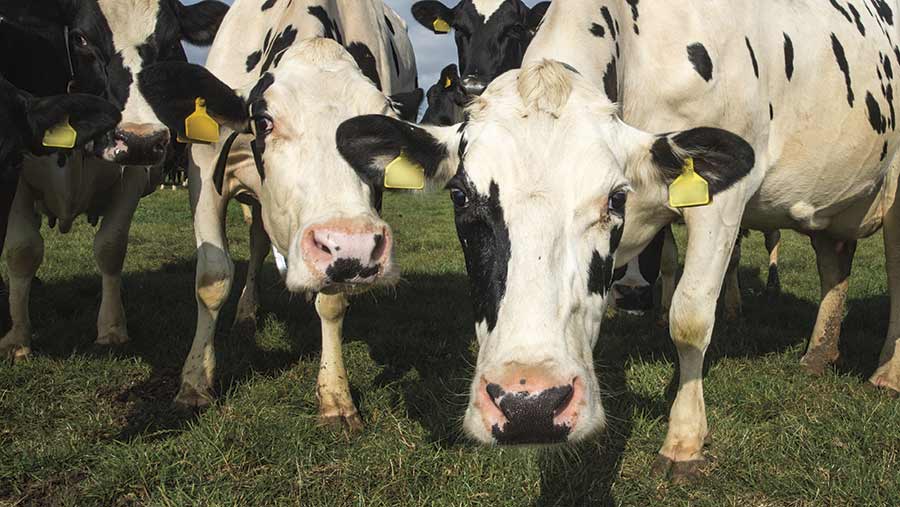Gold Cup award refocuses for more farming systems
 © Tim Scrivener
© Tim Scrivener Milk producers using a broader range of management systems will be eligible to compete for the prestigious Gold Cup for the first time after organisers changed the entry requirements.
Previously the competition, organised by the Royal Association of British Dairy Farmers (RABDF) and National Milk Records (NMR), focused on higher milk yields.
However, the RABDF said that for 2017, rules governing entry had changed to “include the wider range of units now more typical in today’s UK dairy farming sector”.
See also: Livestock Event 2016: Gold Cup winner announced
Gold Cup 2017
- Qualifying and nominated herds invited to enter by end of April.
- Entries must be received by 26 June 2017
- Shortlist of six herds notified by end of July
- Finalists judged on farm during September 2017
- Gold Cup presented on Wednesday 7 February 2018 at Dairy-Tech, Stoneleigh Park, Warwickshire
A spokeswoman for the organisation said: “While the traditional entry route focusing on milk production, somatic cell count and genetic merit data from official milk records remains, the Spring Calving Index that also appears on the herd’s milk records will be considered in herds where applicable.”
In addition, herds can be nominated through regional and national discussion groups and specialised grazing groups.
Reliable records
“While official milk recording will not be a prerequisite in these nominated herds, judges will need to see reliable production and management records to make a robust decision,” the spokeswoman said.
She told Farmers Weekly the move meant the cup would now take account of dairy farmers who excelled in herd health and welfare, environmental management and overall efficiency rather than achieving the highest yields.
NMR director Jonathan Davies added: “These changes will ensure that more extensive grass- and forage-based businesses can compete alongside the housed and higher-input herds. But we will remain focused on herds, whatever their system, that demonstrate high standards in the parameters, which include herd health and fertility.”
RABDF chairman Mike King said he believed the award would remain the most prestigious accolade possible for a dairy business.
“We will continue to review the criteria for entry and judging to make sure it best reflects the UK dairy industry and showcases the top herds as examples of good management,” Mr King said.
Gold Cup: a potted history
- The cup value is about £100,000 depending on gold price
- 1920 competition launched by feed company R Silcock and Sons
- Originally run by National Dairy Herds Association
- 1968 Royal Association of British Dairy Farmers took over
- 1995 RABDF and NMR joined forces
- First 60 years dominated by British Friesian herds
- 1982 first British Holstein herd won – breed has dominated since
- Ayrshire, Jersey and Guernsey herds have also won
- Least well-known breed to win is the Blue Albion (twice in 1920s)
